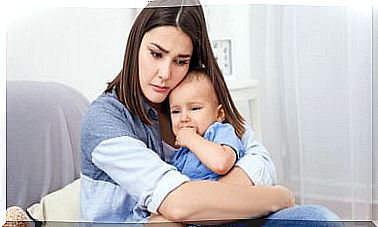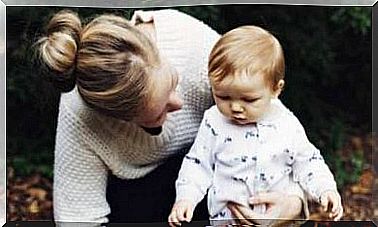7 Things Not To Say To Someone Who Has Suffered A Miscarriage

A miscarriage or spontaneous abortion is a situation that can occur before 20 weeks of pregnancy for various reasons. Now, regardless of the cause, it causes a great feeling of guilt and deep pain in the woman. Therefore, it is important to know how to support her and help her get ahead.
Premature pregnancy loss is not easy to overcome. In fact, it is not easy to acknowledge the loss of the baby, much less to talk about it. At least not at first and not with everyone.
In these cases, it is necessary to learn to respect the pain and the process of each woman. We must not burden her with advice, criticism, comments and speeches. In addition, it is always possible to seek the professional help of a psychologist.
7 things you should not say to someone who has suffered a miscarriage
In situations as difficult as this, instead of trying to help with words, it is best to learn to give the other person space and time. Although it may not seem like it, this is another way to provide support, because it denotes respect for the other.
Advice and words of encouragement, even when well-intentioned, are not always the best way to encourage someone who has experienced a miscarriage. Therefore, it is important to learn to recognize to what extent these types of interventions are worthwhile and, of course, it is also essential to learn to perform them with respect and delicacy.
When you want to help someone who is going through a difficult situation, such as grieving a miscarriage, the first step is to recognize that the other person does not have to meet our expectations or follow our guidelines. Everyone has their own process and it is essential to respect it. We are not all the same and, therefore, we do not all need to be cared for or comforted in the same way.
Next, we will discuss what are the comments that you should not say to a person who is suffering the loss of a pregnancy.
1. “It wasn’t a real baby.”
For many women, bonding with their baby begins as soon as they find out they are pregnant. Even if you have been pregnant for a few weeks, the baby was real and in your heart, plans and dreams were formed, a family and a totally different life. No matter how advanced the pregnancy was, for a woman who suffered a miscarriage, it was her baby.

2. “At least it was not in an advanced stage of pregnancy”
It is true that the more advanced the pregnancy is, there may be more complications if there is a loss, but that does not reduce the pain felt by the loss of a baby. The idea that for a woman having a miscarriage during the first trimester is ‘normal’ and not embarrassing, it is quite wrong. The physical and emotional pain is very real, even if it happens in the early stages of pregnancy.
3. «If you have lost it, it is because it was not destined to be born»
Hearing this phrase during the grief of a loss can further aggravate painful feelings. The person receiving these words may feel that you are telling them that they are not destined to be a parent because they have lost their baby. You may feel like destiny is important in your life, but these words are best left unsaid in front of someone who has suffered a miscarriage.
4. “At least you know you can get pregnant”
There are a lot of women in the world who are struggling to get pregnant. This fight comes with pain and grief when each month they fail. Getting pregnant is the first step towards motherhood and a woman who has had a miscarriage also feels that she is being deprived of pregnancy, having thought it was possible.

5. “Don’t be so bad, it’s something that happens very often”
For many women who have suffered a miscarriage and who need words of encouragement and support, this phrase can be truly heartbreaking. It is true that miscarriage is quite common, especially during the first three months of pregnancy, but this does not mean that the affected woman needs support, compassion and also that the grief phase that comes with any type of loss is respected. .
6. “In a short time you will be fine”
For some women, the grieving period is very short after a miscarriage and this is not a negative thing, each woman has her own grieving phase and must be respected. However, for others, the pain can last for a long time and can become quite complicated by several factors: such as when you are told that you will be fine in a short time, when you clearly will not.
It can also be very painful to tell a woman who has suffered a miscarriage to go to a doctor or psychologist. It is her grief and she is the one who must decide whether to take this step or not and when to take it. Additionally, the physical side effects of a miscarriage can last for several weeks and it may take longer to work through the emotional aspects of the loss experienced.
7. “Be grateful for what you do have”
When someone is upset, it is known that telling them to hold on is not helpful at all, indeed, it can aggravate the situation. It is neither ethical nor moral. This phrase is often said to women who have older children and are grieving over their miscarriage.
Even if you already have children, the loss produces the same feeling. Regardless of how many children you have , it is perfectly normal to cry after losing a pregnancy.
How to help then?
The best way to help a person who has suffered a miscarriage is simply by respecting their grief. For this, it is necessary to learn to accompany the feeling, from the affection, and provide support through sincere and powerful gestures (such as a hug or helping with some domestic task).
It must be borne in mind that if our intention is to help, it is essential to make inappropriate comments, criticisms (of the person and their way of approaching the situation), and avoid advice and opinions without the affected person requesting it.










